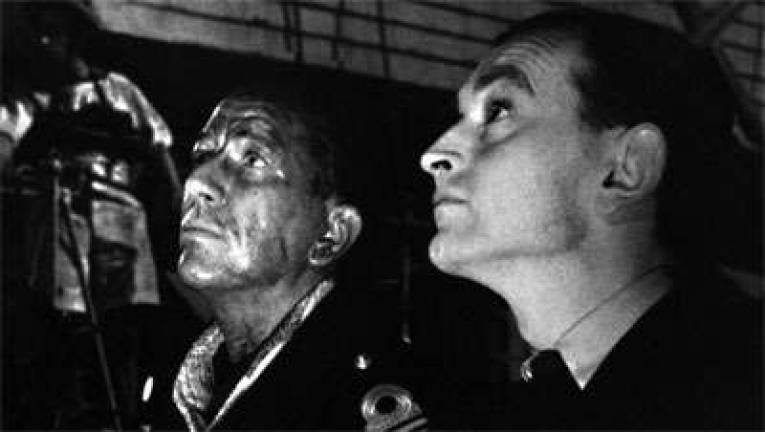Citizen Artist: A Noel Coward Film Series to Remember

As part of the citywide Noël Coward tribute Star Quality: The World of Noël Coward, the film series at the Walter Reade Theater makes it evident that current pop culture has not produced the kind of multitalented demi-giants like the 20th century's Coward, Jean Cocteau, Orson Welles, Melvin Van Peebles. Very possibly Michael Jackson and R. Kelly might have joined their ranks, had scandal, opprobrium and racism not intervened. And George Clooney certainly doesn't rate-no matter how relentlessly the media celebrates him or how egregiously he fails. Coward's output as writer, composer, performer and filmmaker typifies a lost era of doubling on brass; the expectation that an artist should be good at more than one thing, even if only to create vehicles for himself. Coward's inventiveness is nothing like today's preening self-promoters. His film work reminds one of how an artist's engagement with the arts also services a society's spiritual needs-a culture in the largest sense. Note the rich, deep vein of patriotism that runs through the movies In Which We Serve and This Happy Breed as well as the social authenticity of Blithe Spirit and the magnificent Brief Encounter. Coward's plays-into-film suggest a debt to the civilization that formed him, paid back with a genuine reflection of its habits and voice. The dramatic family pageant of This Happy Breed (first filmed as Cavalcade, the Academy Award-winning Best Picture of 1933) puts national portraiture and critique in proper perspective-not the polarized, obnoxious mess to which our contemporary PC entertainment has sunk. The Criterion Collection contributes to the Coward remembrance with an extraordinary box set. "David Lean Directs Noël Coward" collects the four major films made during the polymath and cinema auteur's WWII-era partnership. Nothing else in film history is like this superb mesh of two distinct sensibilities, a clever traditional craftsman (Coward) elevated by a pioneering visionary (Lean). The Criterion box refurbishes Brief Encounter and finally makes available the three hard-to-find treasures. These movies give a fascinated view of a nation's traditions that is so familiar it may seem superficial; yet the films transcend the trends of their time by penetrating their familiar domestic surfaces. Coward and Lean's perceptions have stood the test of being popular, then unfashionable and now impeccable. Their influence on Terence Davies (The Deep Blue Sea), Mike Leigh (Happy-Go-Lucky), André Téchiné (Scene of the Crime) and Steven Spielberg (Schindler's List) is clear proof of Coward and Lean's indestructible artistry. Of course, the Lean package is just part of the Coward oeuvre; his lighter musical-comedy work (from Bitter Sweet to Design for Living) is also represented in the Lincoln Center retrospective. Coward's film output preserves the idea of a citizen-artist as an artist of civilization.